Local councils and institutions are transforming road verges into rivers of owers – and saving money while they do it. But are these sown ‘meadows’ any good for pollinators and other wildlife?

There’s a grim and oft-repeated statistic: since the 1930s, our traditional wildflower meadows have declined by 97 per cent, pushing many grassland species to the verge of extinction. So, while Britain may still be largely green, it is not nearly so pleasant – for wildlife or wildlife lovers.
Meanwhile, the botanical conservation charity Plantlife estimates that the 500,000km of rural road verge in the UK is equivalent in area to roughly half the remaining flower-rich grassland and meadow in the country. It points out that these ubiquitous strips of habitat could be important refuges for a huge range of familiar and rare native plants and the diverse animal communities they support, including beleaguered butterflies and vital pollinators, not to mention bats and birds.
Advocates for nature have long bemoaned a needless obsession with tidiness and clumsy management of verges by poorly trained contractors. It is perhaps understandable that the interests of wildlife come a poor third to considerations of road safety and budget. Driver sightlines are of paramount importance, and for cash-strapped local authorities lacking in time and expertise, it’s not surprising that maintenance regimes are often far from sensitive, involving regular mowing and dousing with herbicides, in most cases.
But now ecologists have a new concern over verge management – and, at first glance, it seems a surprising one. An explosion of colour along roadsides in several UK cities this summer was replicated in the media, with the riotous displays – often in otherwise unprepossessing locations – described as ‘wildflower meadows’. They were widely celebrated for their powerful visual impact and the resource they provide to pollinating insects.
Esta historia es de la edición September 2019 de BBC Wildlife.
Comience su prueba gratuita de Magzter GOLD de 7 días para acceder a miles de historias premium seleccionadas y a más de 8500 revistas y periódicos.
Ya eres suscriptor ? Conectar
Esta historia es de la edición September 2019 de BBC Wildlife.
Comience su prueba gratuita de Magzter GOLD de 7 días para acceder a miles de historias premium seleccionadas y a más de 8500 revistas y periódicos.
Ya eres suscriptor? Conectar
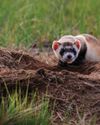
Does cloning create identical copies?
EMBRYOS ARE MADE OF STEM CELLS that divide to give rise to different types of cells, everything from skin to brain cells. Scientists once thought that reproductive cloning creating a genetically identical copy of an individual organism - would be impossible without using stem cells and that the path leading to mature 'differentiated' cells was irreversible. But clawed frogs proved them wrong...
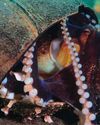
Tool-using animals
Our pick of 10 species that exhibit this special skill

Mission Blue
Sylvia Earle has dedicated her life to marine conservation; she tells BBC Wildlife why protecting the ocean is essential to all life on earth
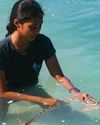
RESHARK
The world's first shark rewilding initiative has seen zebra sharks released in the waters of Indonesia's Raja Ampat archipelago
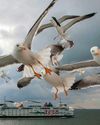
ON DECK
Ferries aren't just for transport, they're also perfect vessels for conservation
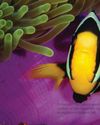
IT'S A COLOURFUL LIFE
Delve into the unique and complex biology of the clownfish, arguably the world's most famous fish
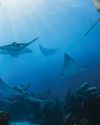
BAHAMAS BENEATH
A dive into the waters of this famous island nation with the creatures that call it home

"To save the reef, we need everybody involved"
Indigenous peoples may hold the key to protecting the Great Barrier Reef
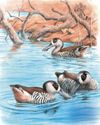
SPINNING AROUND
Going around in circles proves fruitful for this filter-feeder
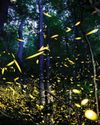
BLINDED BY THE LIGHT
On balmy evenings, amorous beetles put on a spellbinding show in North American forests